|
In case you haven’t noticed, I have a book coming out next week. But how could you not notice? I’ve been hyping it on social media, in a monthly newsletter, and every other way I can think of. And let me tell you, it feels strange to be doing that. Of course I’m thrilled that my memoir, Mango Rash: Coming of Age in the Land of Frangipani and Fanta, (see what I just did there?) is being published, and of course I want to tell the world about it. But the transition from writer to author to book promoter is not a natural one.  My comfort zone and happy place My comfort zone and happy place We writers tend to be introverts—recluses, even—content to hole up in our writing studios for hours on end, encountering no one except the characters we put on the page. When we venture out into the world, it’s often as observers, absorbing details and mentally recording conversations. If someone asks what we’re working on, we answer in the haziest terms: “Oh, ummmm, a (mumble-mumble) coming-of-age memoir set on a (stutter-stutter) tropical island.” But that all changes once we become authors, or even aspiring authors. Then we have to hone a new set of skills, promoting our books with spiels of various lengths: the logline, the elevator pitch, the face-to-face pitch, the book talk, and so on, not to mention creating web sites, blogs, newsletters, and press kits.  Happy freelancer, pre-flackdom Happy freelancer, pre-flackdom I got a preview of this process when I shifted from being a journalist to working for a university news service some twenty years ago. A big part of my new job was writing about interesting research, just as I’d done as a science journalist. But another big part was promoting that research, in hopes of getting news coverage. In short, I became what we journalists disparagingly called a flack. And that, at first, felt icky. Just now I looked up synonyms for “flack” and among the results was “pain in the neck.” That’s exactly what I felt like when I had to cold-call journalists—former colleagues among them—and try to convince them to write about the researchers whose work I sought to publicize. Over time, I grew more comfortable in that role, mainly because the research I promoted was so worthwhile, and the scientists whose work it was were so grateful for my efforts, and because even the most jaded journalists appreciated receiving lucid explanations of arcane scientific points. 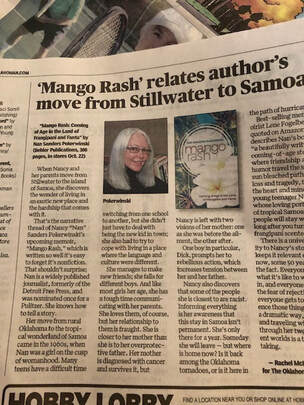 It's a little strange to see my picture in the newspaper . . . It's a little strange to see my picture in the newspaper . . . But now I’m not championing life-changing technological advances or life-saving medical findings or paradigm-shifting discoveries. I’m promoting my own book, a book that’s all about me. 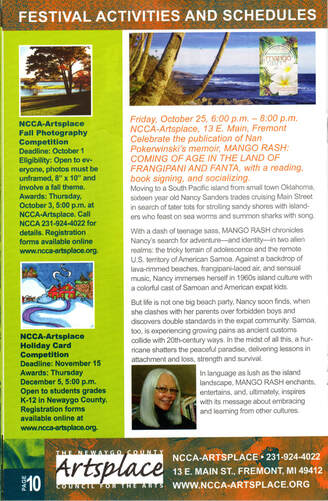 . . . and in event announcements . . . and in event announcements So everything I’m doing—and will be doing for the next several months or longer—feels like nothing short of shameless self-promotion. Never mind that every book and article I’ve read about book publishing and marketing says this is exactly what authors need to do. And never mind that, given my university PR experience, I don’t totally suck at it. In fact I kind of enjoy doing the work—until I remember that it’s ME I’m boosting. Then it feels . . . icky. To counteract the ick, I’ve come up with a few practices that at least make me feel a little less self-absorbed:
4 Comments
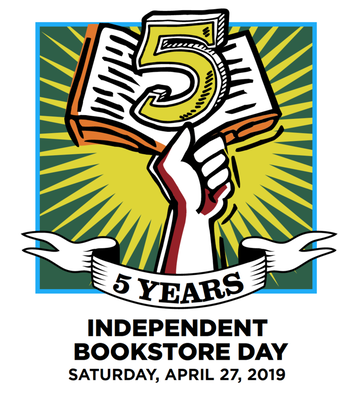 Last Saturday I celebrated an occasion I’ve never celebrated before: Independent Bookstore Day. It was so much fun I plan to put it on my calendar every year. 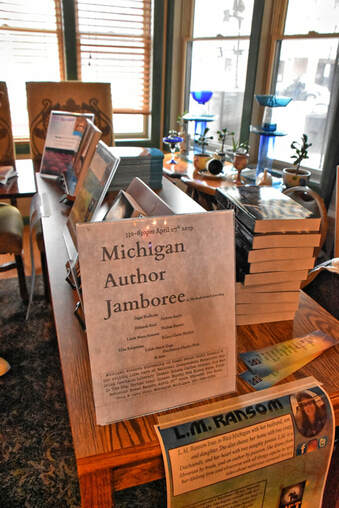 The bookstore celebrated Independent Bookstore Day with a Michigan Author Jamboree The bookstore celebrated Independent Bookstore Day with a Michigan Author Jamboree All around the country indie bookstores hosted special events, like the Michigan Author Jamboree my friend Janet and I attended at the Book Nook & Java Shop in Montague. A chilly wind just about blew us into the store, but inside by the fireplace, with warm drinks in hand, all was cozy. 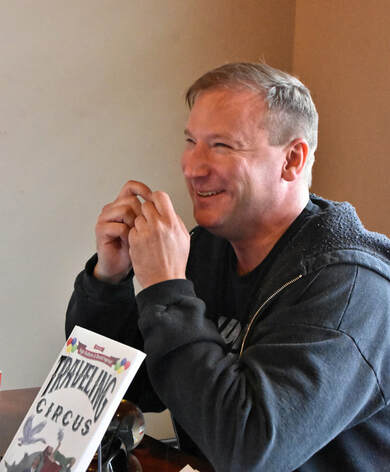 Ingar Rudholm led an informative workshop Ingar Rudholm led an informative workshop The event opened with a workshop on how to present your book to prospective readers. Led by author Ingar Rudholm, the workshop offered easy-to-apply tips on quickly engaging readers and keeping their attention. We all had a chance to practice our book pitches during the workshop. And it was a good thing we did, because after the workshop, any authors who wished to do so were given ten minutes to get up on stage and talk about their books to an audience of readers.  My very first author display! My very first author display! Following those presentations, authors signed and sold books at tables near the front of the store. Even though I won’t have books to sell until October, I took the opportunity to spread the word about Mango Rash, hand out information cards, and sign up subscribers to my newsletter, Mango Meanderings. 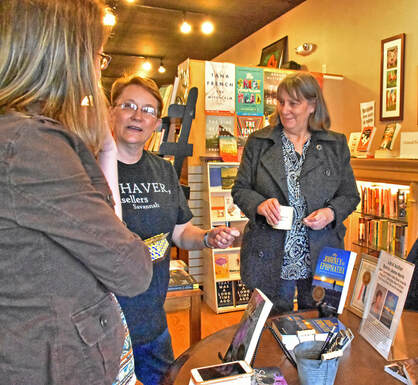 Authors D.A. Reed (left) and Janet Vormittag (right) talk with a store visitor Authors D.A. Reed (left) and Janet Vormittag (right) talk with a store visitor Beyond promoting my own book, though, I was excited to connect with other Michigan authors. It’s always interesting to hear how authors began writing and what led them to write the kinds of books they write. I also learned about Written in the Mitten, an online community of published and aspiring authors that shares information on local author events.  Most of all, I was happy to show my support for independent bookstores. These welcoming spaces are more than stores, often serving as community hubs and performance venues. They enrich their neighborhoods and boost local economies. As publishing professional Valerie Peterson noted in a 2017 article, even some well-known authors got their start at local independent booksellers. “For example,” she wrote, “Square Books in Oxford, Mississippi hosted an unknown John Grisham's first book signing event.” 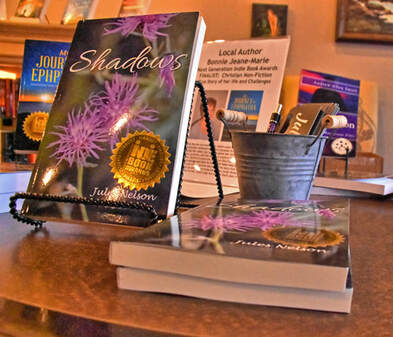 Books by Jules Nelson, Bonnie Jeane-Marie, and Andrew Allen Smith Books by Jules Nelson, Bonnie Jeane-Marie, and Andrew Allen Smith So mark your calendar for the last Saturday in April 2020 and plan to celebrate next year’s Independent Bookstore Day. But don’t wait until then to celebrate independent bookstores. Visit often, and buy books! As for me, I’m heading off tonight to Flying Bear Books for poetry night.
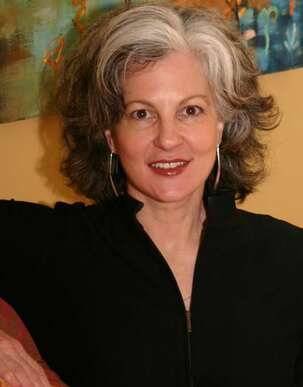 Author Kelly J. Beard Author Kelly J. Beard Today’s visitor, Kelly J. Beard, is an author whose writing I have admired since we met in a master class at the Tucson Festival of Books two years ago. Along with the other members of the class, I was a finalist in the festival’s literary contest, and Kelly won second place for an essay later published as "Os Sacrum" in Santa Ana Review. When I learned that her memoir, An Imperfect Rapture, was headed for publication after winning the Zone 3 Press Creative Nonfiction Book Award, I could hardly wait to read it. The book, which debuted last November, is a remarkable story of finding her way in the world after growing up in poverty, within the strictures of fundamentalist religion. The story is compelling, and the writing masterful. I’m delighted that Kelly has agreed to answer questions today about the writing and publication of An Imperfect Rapture. Writing has been part of your life for a long time, yet your career was practicing employment discrimination law. Are there skills you developed as a lawyer that also serve you well as a writer? 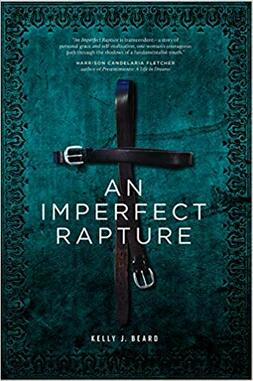 It’s funny, but my latent love for writing probably served my legal work as much as (or more than) my legal work served my writing. A huge part of my litigation practice was writing motions and briefs, basically marshalling the facts and law into a persuasive story. Thinking about this has just reminded me of a legal writing technique I used while writing my memoir, An Imperfect Rapture. As you know, the writer’s ability to infuse her story with insightful reflection is the very essence of memoir. As opposed to the kind of writing approaches one might take in writing biography (“Just the facts, Ma’am”) or fiction (“Show don’t tell”), memoir’s marrow requires a measure of telling beyond the facts.  As I struggled to find ways to add reflective texture to my story I sometimes used a loose version of a writing technique taught in law school called the “IRAC” method. In short, the IRAC method requires the writer to identify the issue (describe the facts) and then to analyze those facts in light of the law. The analysis part of the IRAC is really quite similar to the memoirist’s reflection. But to get back to your question, the real skill I developed as a lawyer that served me as a writer was self-discipline; the day-to-day commitment to sit at the computer (or wherever) and work on something you know won’t be finished that day (or year, or maybe even decade) because you believe in what you’re doing. That’s the real work of both practices. How deeply did you have to dig to bring forth the memories you recount in An Imperfect Rapture? Were they close to the surface or submerged? What helped you access those memories? I started writing An Imperfect Rapture in my early-to-mid 50s, so the events I was writing about were anywhere from 30 to 50 years old. Like a lot of people—particularly, I suspect, people who had difficult early experiences—I submerged so much of those early years under layers of busy-ness, mostly trying to be a decent mom and lawyer. I hadn’t really thought about writing memoir. I used to write poetry and short fiction, and had started a couple of novels before practicing law. So my thought was that I’d write a novel when I finished practicing law. All my life I’ve struggled with depression, but for most of my “mom” and “lawyer” years it was easy to stay distracted. I think I was also invested in trying to give my daughter a different experience than I had, so I never talked to her about the events in my memoir. She hadn’t lived in the shame of poverty or experienced the confusion of wildly erratic and unstable parenting, or the violence of their religious faith. When she left home, I fell into one of the worst depressions I’d ever had. And that’s saying something. I finally found a brilliant therapist who is probably responsible both for saving my life right then and for getting me to write the memoir. I remember sitting in his office one day weeping over the distance between my daughter and me. My expectations of her and our relationship was unhealthy, I realize now, but at the time I felt utterly abandoned by her and betrayed by life. I told the therapist that I was thinking about writing to her—telling her how much I loved her, how irrelevant I felt in her life, how sad I was. I expected him to say, “Good idea, even if you don’t send the letter.” Instead, he looked at me and asked, “What doesn’t she know about any of that? What could you tell her that she doesn’t already know?” And that’s the book, really. In the book's acknowledgements, you mention “that first scary thought, maybe I'll write a memoir . . . ” What scared you about the prospect?  The scariest part was knowing I’d have to reveal this whole other life, this person and past no one—not my friends or colleagues or even my own daughter—knew about. I also have a pretty fractured birth-family. Only one of my siblings still talks to me; two haven’t spoken to me for decades. Although my father died in 1996, my mom is still alive, and I didn’t want to hurt her. It felt a little like deciding to pour gas on the charred remains of our family. How did you move past that fear enough to write your story? For one thing, I pretended I was writing for the very limited audience of my daughter and perhaps any child she might have, and that they would only read it after I was gone. I focused on telling the truth with as much beauty (skill) as I could muster. And I figured I could keep it from my mom. She’s 90 and doesn’t use the internet. Also, the more I wrote, the more committed I became to that Aristotelean ideal of truth and beauty. That ideal was hugely important in helping me work past any lingering sense of grievance and find a way to be honest with the reader about these deeply complicated people and experiences. Take us through your journey from initial idea to publication. How long did you spend writing and revising the book? What avenues did you explore in pursuing publication? How did you come to be published by Zone 3 Press?  As I mentioned, the initial idea occurred to me shortly after my daughter started college in 2010. I was still practicing law, but I had my own practice and was able to scale back. I read somewhere that Virginia Woolf wrote two hours a day, always in the morning. She claimed not to have enough creative steam to carry her past the two-hour mark. I took her cue and wrote for two hours each morning (except Sundays—some things never leave us) and always before work or even reading email. The few times I tried to change this schedule either by working first or peeking at email before writing, I lost my creative energy for the day. After a few years of working on it, I thought I had a pretty solid manuscript. In the summer of 2013, I attended a Master Class with Emily Rapp Black in Taos. The manuscript was 450 pages long. Emily critiqued the entire manuscript (as did the other workshop participants). Emily’s critique was brilliant, and I spent the following year working on the areas she suggested. 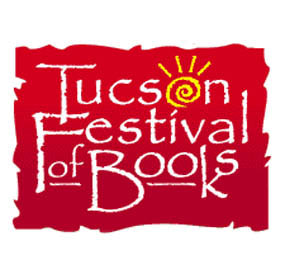 Then, in the summer of 2014, I attended a workshop in Tucson. It was affiliated with the Tucson Book Festival and the workshop leader was Rigoberto Gonzalez. It wasn’t a Master Class, so we submitted short (20-page) essays rather than entire manuscripts. I submitted a section of the manuscript. Again, here I was with a truly amazing teacher giving me advice I couldn’t have come up with on my own. As a consequence of those two workshop experiences, I figured out I was not one of those (lucky!) people who can write themselves into the craft. I needed a good teacher (or teachers) or I’d be stuck—never really knowing what or why parts of the manuscript weren’t working. That’s when I decided to go into an MFA (Master of Fine Arts) program. Please hear me when I tell you that I realize some of the most talented writers I know (and have read) didn’t go through MFA programs. I don’t think they’re for everyone. But at that point (I was moving into my later 50s), I didn’t think I would learn the craft sufficiently without significant guidance. 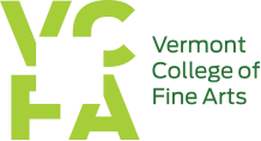 That winter, I entered the Vermont College of Fine Arts low-residency MFA program. It was a pretty mixed bag, and while I had two fantastic advisors during my tenure there, I also had a couple that weren’t worth the tuition. But I went to tons of craft talks, studied work I might not have found otherwise, and worked diligently at learning the craft and revising An Imperfect Rapture. I ended up submitting the manuscript—essentially re-written and 100 pages “lighter” than what I’d submitted to Emily three years earlier—for my creative thesis in 2016. At that point I thought, OK, this guy is ready to go. I started querying agents and submitting to a few contests. I don’t know how many agents I queried, maybe 30 or 40, but no one was interested. I think to a certain extent the gatekeepers—the literary intelligentsia, if you will—have a bit of a herd mentality. And, of course, it’s all about making money in that world, so increasingly agents make “safe” choices, a fact evident by walking into any bookstore and seeing how the genre has been cannibalized by celebrity memoirs. 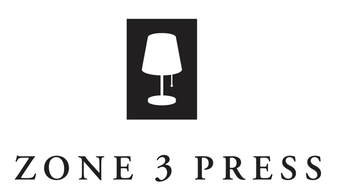 So I started sending queries to independent and university publishers and also entering a few contests that were being judged by people whose work I loved. I don’t know how many contests I entered (not that many because it costs money to enter and it too often felt like a boondoggle), but An Imperfect Rapture was a finalist in two other contests before I submitted it to Zone 3 Press. Janisse Ray was the judge that year (2017). I’d read several of Ray’s books, and she was one of my idols. Her work is not only breathtaking, but important. By Important I mean necessary. So, when I saw the ad for the Zone 3 Press Creative Nonfiction Book Award, and saw Ray was judging, I knew I wanted to enter. Actually, I almost didn’t. By the time I saw the ad, the deadline was only a week or so away, and there was a page limit of 300 pages. I’d spent two years largely re-writing the manuscript, but also cutting, culling, and winnowing it down from 450 to about 385 pages. The thought of getting it from 385 to 300 pages seemed impossible. Let alone doing so in such a short period of time. But I did. I killed way more darlings than I would have dreamed possible. So there it is. Ray did love it! The darlings weren’t missed. Zone 3 Press is the press of my dreams. But that’s the contest I almost skipped. What parts of the book were most challenging to write? Were there parts you enjoyed writing? 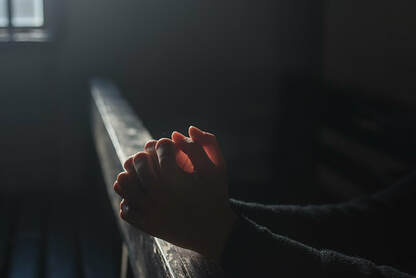 The hardest part to write, by far, was the end. Mostly because I didn’t know what I was writing about, and I kept trying out possible ends. As you know, the story in An Imperfect Rapture ends when I’m in my mid-twenties. I tried ending at later dates and with later events closing the final scene. I remember that in the third semester of my MFA I was trying to work out the ending, and not to sound all woo-woo or anything, but in addition to writing, I was spending a lot of time practicing yoga, meditating and praying. And at one point while trying to write the ending, I went into a kind of fugue state and wrote the end scenes. (It was the one and only time this has ever happened to me while writing, so I’m not sure I’d want to rely on it as a strategy for finding my way to an ending, but who knows?) I subsequently edited the heck of the rest of the manuscript, but the ending is the only part of the manuscript I could never really edit. It put itself on the page, and I had to leave it alone. One of the cover blurbs calls An Imperfect Rapture more of a "coming to terms" story than a coming of age story. Do you agree with that description? What does that mean to you?  Oh, I absolutely agree with that description. I couldn’t pin down what the difference is with any precision, but “coming if age” conjures the idea of mastery: “I came, I saw, I conquered,” as opposed to the idea of “I came, I saw, I understood.” I understood. But I’m not sure I conquered. You write with honesty about living in poverty. What do you think people who've never lived in poverty don't understand about people who are struggling to get by? The shame of being poor. And the rage. I read somewhere that the average age of death for men who work as coal miners in Appalachia is 46. There’s a reason for that. Poor people are dispensable in this system, and they know it. At a few key times in your life, someone challenged you to be more than you thought you could be. At other times, people told you that you weren't good enough. Both experiences seem to have motivated you. How did that balance play out in your life? That’s the mystery, isn’t it? When I was writing An Imperfect Rapture, I spent a lot of time wondering what my life would have been like if just one or two more kind, empathic people had shown up to mirror someone to me I could love and root for, or if one or two more tough-love kind of people had shown up to mirror someone to me I could admire. So, I’m not dead. I had the life I had, good and bad, so at the end of it all, I feel like it was exactly what it was meant to be. One more kind person (“angel”) or one more challenger (“worthy adversary”) and I might be—who knows, on the Supreme Court? The author of ten or fifteen important books? But one fewer kind person or challenger and I wouldn’t be here, I suspect. What's next for you as an author? 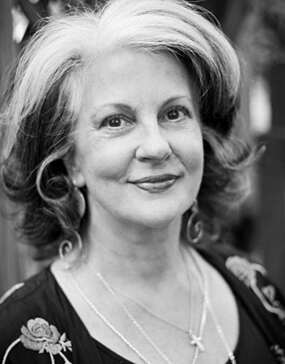 Right now I’m trying to give An Imperfect Rapture a chance to breathe. Maybe all authors feel like this, but I can’t imagine writing anything I love as much as this book. So, I’m trying not to pressure myself about that. Some readers have asked if I’ll be writing a sequel (a lot of years between 24 and 60), but right now, I really don’t know. I’ve written a few essays I like, but the essay form feels a little constraining to me. I’m moving toward another memoir, I’m pretty sure, but I just don’t know what slice of life is calling me to investigate it yet. Around this time last year, inspired by year-end "Best of . . . " lists, I compiled my own list of standout books I'd read during the past twelve months. I didn't rank my books—on that point I have to agree with author Neil Gaiman, who has compared picking five favorite books to "picking the five body parts you'd most like not to lose."  Instead, I listed ten books I found memorable for any number of reasons: the writing was exceptional, the story was engrossing, the tale was told in an unusual way, or the book just stayed with me for reasons I couldn't explain. That's what I'm doing again this year. A couple of the books on this year's list were written by friends, but that's not why I'm including them. They're on this list of books I want to tell you about because that's where they deserve to be.  Last year I limited my top-whatever list to ten books. This year I'm being more generous and giving you a baker's dozen. About half were published in the past year; the rest have publication dates ranging from 1960 to 2017. I didn't set out to include particular themes, but as I look at the choices on my list, I see that several deal with pivotal periods in history, people making a life in unusual situations, and the challenges of overcoming adversity and finding a place in the world. Just as I wrote last year, I'm not really sure what to call this list. My Most Want-to-Tell-You-About-Them Books of 2018? Or simply A Bunch of Books I Read This Year and Actually Remember Something About? Whatever you want to call it, here it is: A Baker's Dozen Something-or-Other Books I Read in 2018 |
| Walden on Wheels: On the Open Road from Debt to Freedom by Ken Ilgunas. Burdened by crushing student debt and inspired by Henry David Thoreau, Ilgunas took off to Alaska, where he scraped together enough money from odd jobs—cook, tour guide, and the like—to repay his loans. Finally debt-free and determined to stay that way, he enrolled in graduate school and bought a used Econoline van that became his mobile dorm room for the next two years. What began as an experiment in frugality became much more: an educational experience in its own right. |
| The Boys in the Boat: Nine Americans and Their Epic Quest for Gold at the 1936 Berlin Olympics by Daniel James Brown. You might think the title and subtitle say it all: American boys, boat, epic quest, 1936, Berlin, Olympics. You pretty much know how it's going to turn out, right? But how it turns out is not the whole story. The beauty is in the details of this tale about a ragtag team of working class kids from the Pacific Northwest who learned—literally—to pull together, challenging elite rowing teams from the East Coast and Great Britain and ultimately defeating Hitler's vaunted rowers in the Olympics. Like a good novel, this saga portrays characters in ways that make you really care how things turn out for them. And just as I couldn't have imagined—until I read Barbarian Days last year—being engrossed in descriptions of one surfing wave after another, I could not have imagined—until I read Boys in the Boat this year—getting so wrapped up in descriptions of boat races. Yet I found myself riveted until the last page. |
| Monsoon Mansion: A Memoir by Cinelle Barnes. One reviewer described this book as a "fairy tale turned survival story," and that's an apt characterization. Barnes's childhood world of opulence and privilege in the Philippines is shattered when a monsoon hits with destructive force, her father leaves, and her mother takes up with a shady character. Still a child, Barnes is forced to fend for herself, navigating not only complex relationships with flawed people, but also such practicalities as finding fresh water. Hers is an inspiring story of resilience. |
| Never Stop Walking by Christina Rickardsson. This book is also a story of resilience and adaptability, but it's almost a mirror image of Monsoon Mansion. Rickardsson, née Christiana Mara Coelho, was born into abject poverty in Brazil and lived with her loving mother in forest caves for the first seven years of her life. Her mother did the best she could, but eventually Christiana ended up in an orphanage. Adopted by a Swedish couple and taken home to Sweden, she was swept into a life that could not have been more different from her earlier years. The story of how Christiana/Christina adapted and came to terms with her dual identities is both heart-rending and heartening. |
| Listening to the Bees by Mark L Winston and Renée Sarojini Saklikar. I am truly blessed to have so many talented friends who find the most interesting outlets for their creativity. My bee buddy Mark Winston just keeps amazing me with his ideas and output. You may remember Mark from his guest post on collaboration, "Everything I Know I Learned From Hermit Crabs." Listening to the Bees is the delightful fruit of one of his collaborations. Merging Mark's scientific knowledge with Renée's poetry, the book explores the challenges to bees in the modern world—and to humans living in complex societies. That's all I'm going to say about this book right now, because I've promised to devote a more space to it in a future blog post. Stay tuned. |
| Personal History by Katharine Graham. Not long after seeing the film "The Post," which dramatizes The Washington Post's struggle to publish the Pentagon Papers, I was browsing at Flying Bear Books and saw a stack of copies of this autobiography by Katherine Graham. Graham (played by Meryl Streep in the movie) was at the helm of the Post during both the Pentagon Papers and Watergate exposés. I snapped up the book and devoured it, fascinated not only by Graham's accounts of these two infamous periods of history and their relevance to current times, but also by the insider's view of a bygone era of journalism and the story of Graham's own evolution from awkward child to overshadowed wife to confident and competent businesswoman. |
| Grit, Noise, and Revolution: The Birth of Detroit Rock 'n' Roll by David A. Carson. I didn't live in Detroit in the 1960s and 1970s, but the city and its music were certainly on my radar and in my record collection, even when I was more than six-thousand miles away in the South Pacific. Carson's chronicle of Detroit's music scene and its ties to the culture and politics of the time makes for an engrossing read—especially fun for me because when I finally did move to Detroit in the early 1980s, I came to know some of the people who are mentioned in the book. Though I knew a bit about their roles in the music and political scenes of those earlier times, Carson's comprehensive account filled in the blanks. |
| The Chicken Who Saved Us: The Remarkable Story of Andrew and Frightful by Kristin Jarvis Adams. I learned about this book when I attended the Pacific Northwest Writers Association conference in Seattle a few months ago, where The Chicken Who Saved Us won the Nancy Pearl Book Award for memoir. I would have bought it and read it for that reason alone, but the cover and the story behind it also drew me in. In this memoir, Adams relates how her son Andrew, who has autism, formed a close bond with a pet chicken named Frightful, and how Andrew's conversations with Frightful ultimately saved the boy's life. |
| Heating & Cooling: 52 Micro-Memoirs by Beth Ann Fennelly. In this age of fractured attention and information overload, it's sometimes hard to commit to reading a book of four hundred pages or more. Yet that's not the reason I find myself increasingly attracted to extremely short pieces of fiction and nonfiction. I delight in the authors' skill in telling a complete story in very few words, and I've started playing around with flash nonfiction myself. In this collection, Fennelly celebrates childhood memories, cultural observations, glimpses into domestic life, and other moments that make life rich. |
| The President is Missing by Bill Clinton and James Patterson. Yes, I know I just extolled the virtues of short works, but there's also a place for mega-books like this 528-page political thriller. Mysteries and thrillers are not my usual fare. However, the idea of a former president collaborating on novel intrigued me. Whatever you think of Bill Clinton—and I realize there's quite a range of opinion—it's fascinating to read details that only a president would know, and to get a glimpse into how a leader's mind works in a crisis. |
| An Imperfect Rapture by Kelly J. Beard. I met this author when we both attended a master class at the Tucson Festival of Books, and when I learned that her memoir was headed for publication after winning the Zone 3 Press Creative Nonfiction Book Award, I could hardly wait to read it. Kelly has kindly agreed to an interview for an upcoming blog post, so I won't go into detail about the book here, except to say that the writing is exquisite, and the story of finding her way in the world after growing up poor, within the strictures of fundamentalist religion, is remarkable. Stay tuned for more. |
| Lincoln in the Bardo by George Saunders. Oh, man. This book sounded so far out when I read reviews of it, I just couldn't imagine getting into it. I know, George Saunders is no slouch, and the book was acclaimed by The Washington Post, USA Today, Time, and The New York Times. But come on, a bunch of ghosts—who don't know they're ghosts—gossiping, griping, and skim-walking around a graveyard where they're caught in a sort of purgatory and trying to help Abraham Lincoln's recently dead son Willie escape such a fate? Really? All I can say is, I was hooked from the first page. The fact that I loved the book so much is a reminder that it pays to step out of my literary comfort zone (which for me would be reading yet another Anne Tyler novel—see list below) and take a chance on something completely different. |
| The Stranger in the Woods: The Extraordinary Story of the Last True Hermit by Michael Finkel. In 1986, a young man named Christopher Knight disappeared into the Maine woods—on purpose—and lived alone there for twenty-seven years. Not exactly self-sufficient, Knight broke into nearby cottages for food and other necessities (including lots and lots of batteries), and though locals knew he was around, he and his secluded encampment remained out of sight for all those years. Journalist Finkel pieced together the story from interviews with Knight after he was found and arrested for the thefts. The story of how Knight survived, and the difficulties he faced in trying to readjust to the life that most of us consider normal, is revealing. |
- Sing, Unburied, Sing by Jesmyn Ward
- Noah's Compass by Anne Tyler
- Commonwealth by Ann Patchett
- Coming to My Senses by Alice Waters
- What Happened by Hillary Rodham Clinton
- The Amateur Marriage by Anne Tyler
- Vinegar Girl by Anne Tyler
- Survival Lessons by Alice Hoffman
- A Patchwork Planet by Anne Tyler
- Crossing Over by Ruth Irene Garrett
- Prodigal Summer by Barbara Kingsolver
- Love & Vodka by R.J. Fox
- Awaiting Identification by R.J. Fox
- A Good Life: Newspapering and Other Adventures by Ben Bradlee
- To Kill a Mockingbird by Harper Lee
- This Is the Story of a Happy Marriage by Ann Patchett
- Anything Is Possible by Elizabeth Strout
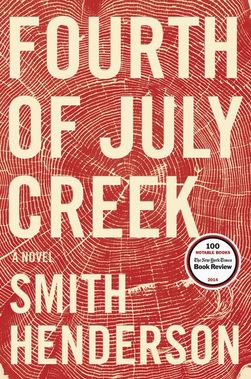
Some place names just make you wonder how they came by those monikers. Take Tongue River, for instance. Or Fourth of July Creek. I Googled that one while working on this piece and didn't find out the origins of the name, but I did discover author Smith Henderson's 2014 novel by the same name. Looks like another book worth jotting down in that little notebook and adding to my to-read list.
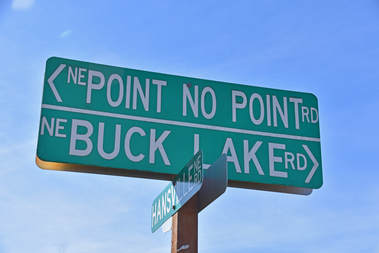
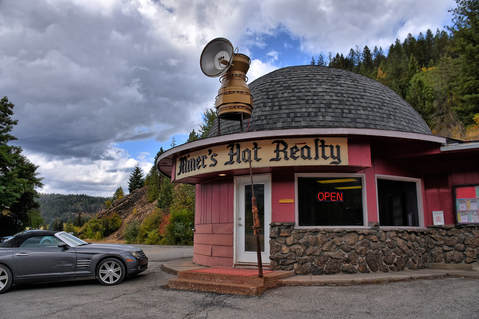 Hats off to this creative landmark
Hats off to this creative landmark In Kellogg, Idaho, there's a circular building topped with an oversized miner's helmet and lantern. Built in 1939, it was originally a roadside diner where workers from nearby lead and silver mines stopped for Coneys and beers. After a stint as a 1950s drive-in restaurant, it closed in 1963, but reopened in 1991 as a realty office, which is what it remains.
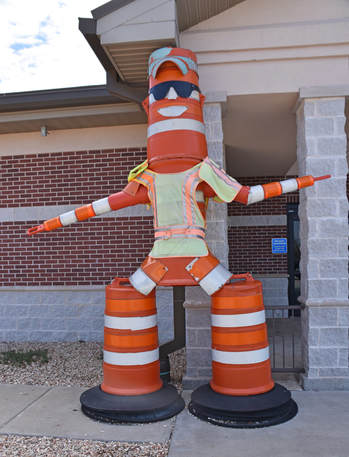 Construction barrel creation
Construction barrel creation Even highway rest stops can serve up some smiles. Weary of construction delays toward the end of our travels last spring, we came across this jaunty fellow in one rest area.
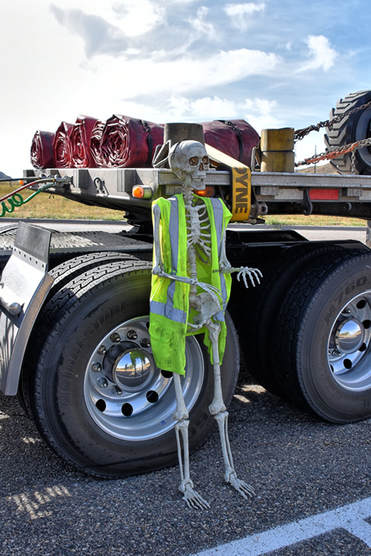
And on our most recent trip, we encountered this frighteningly funny chap at a pit stop. Two truck drivers were preparing to station the skeleton at the controls of a piece of equipment they were transporting. They told me they planned to put a sign on Mr. Bones's back reading "I WAS TEXTING."
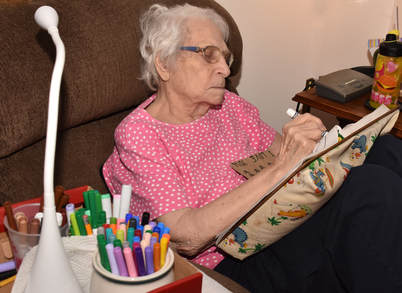 Bea Cordle, at work
Bea Cordle, at work 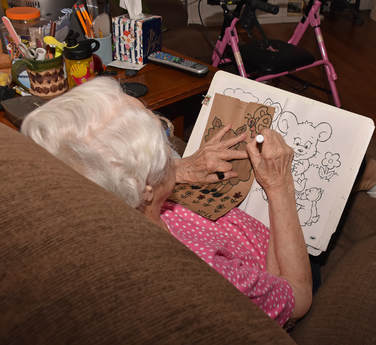
Volunteers decorate the bags, and that's where Bea applies her talents. Curled up in a comfy armchair in the living room of the home she shares with daughter Sandra Bernard and granddaughter Marquita Bernard, with a rainbow of markers at hand and a pile of coloring books for inspiration, Bea draws her cheerful creations and finishes off each drawing with big "I LOVE YOU" at the bottom.
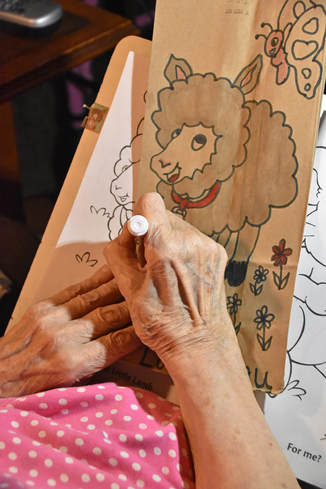
For Bea, the project has revived talents that took a backseat while she was raising her five children. In her youth, she enjoyed painting landscapes and cottage scenes. Then, for many years, she turned her creative energy to sewing clothes for her children (including wedding dresses, bridesmaids' dresses, and flower girls' dresses for all the family weddings) and crocheting outfits for the grandchildren that came along later. When she lost sight in one eye six years ago, she could no longer crochet.
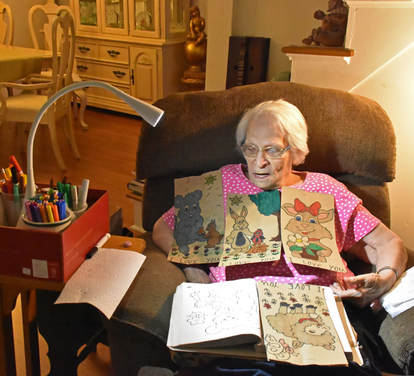
But she could. And once she got going, she was unstoppable. She estimates she has decorated more than 1,600 bags to date.
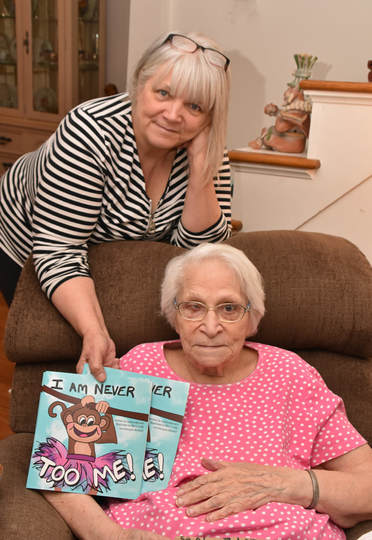 Sandra and Bea with fresh-off-the-press copies of I Am Never Too Me!
Sandra and Bea with fresh-off-the-press copies of I Am Never Too Me! The bag project isn’t the only creative work underway in the big gray house in the heart of Newaygo. Bea, Sandra and Marquita recently published a children's book, I Am Never Too Me!, and Sandra and Marquita have two more books in the works: Things That Matter and Elton's Tall Tale.
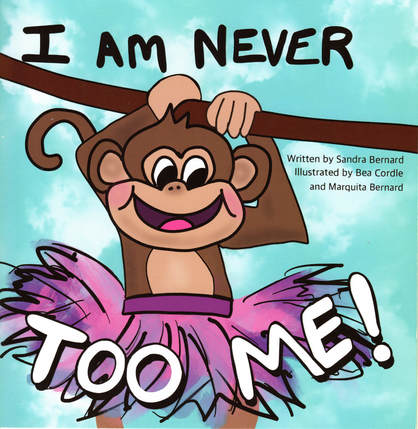 The book's front cover
The book's front cover The family invested in a computer, and Marquita, who has a background in design and illustration, created the front and back covers, added a few illustrations, and designed the layout.
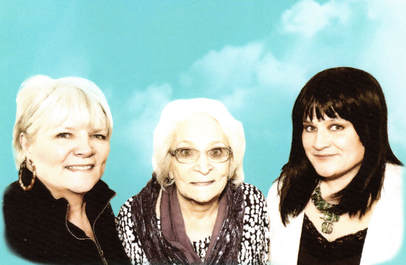 Sandra, Bea, and Marquita in their cover photo
Sandra, Bea, and Marquita in their cover photo For Bea, Sandra and Marquita, working together on creative projects is part of a "spiritual movement" that began when they first started talking about living together.
For more about Sandra Bernard's creative spirit and talented family, plus a sample of her poetry, see her April 20, 2016 guest post, Creative Thinkers.
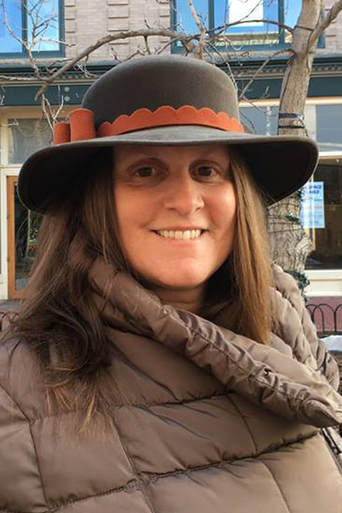 Cristina Trapani-Scott
Cristina Trapani-Scott That's the advice of this week's guest, Cristina Trapani-Scott. I first met Cristina fourteen years ago at Bear River Writers' Conference. After the conference, we formed a writers' group with another writer we'd met there. The result was the Sister Scribes, an Ann Arbor-based group that eventually added three more members and became a source of support and motivation for all of us.
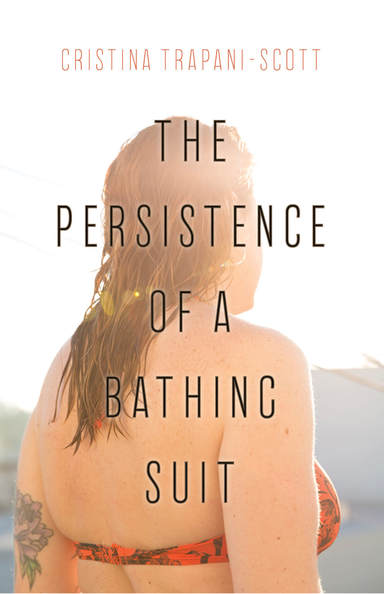 Cristina's debut chapbook collection of poems was published last year
Cristina's debut chapbook collection of poems was published last year An author, educator, and former journalist, Cristina now lives and writes in Northern Colorado. Her debut chapbook collection of poems, The Persistence of a Bathing Suit, published in 2017 by Finishing Line Press, explores the moments that fill the space between surviving a breast cancer diagnosis and accepting the inevitability of change and uncertainty. Cristina's work has appeared in the Patterson Literary Review, Hip Mama Magazine, the Driftwood, Bigger Than They Appear: An Anthology of Very Short Poems, and Sweet Lemons 2: International Writings with a Sicilian Accent. She holds an MFA in poetry and fiction from Spalding University and currently teaches creative writing and composition online.
Find Poetry in Everyday Things
by Cristina Trapani-Scott
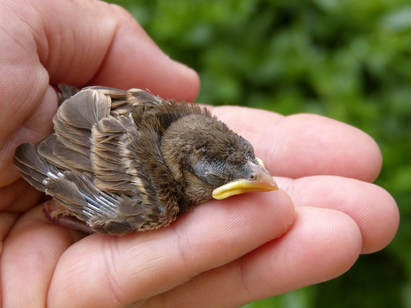

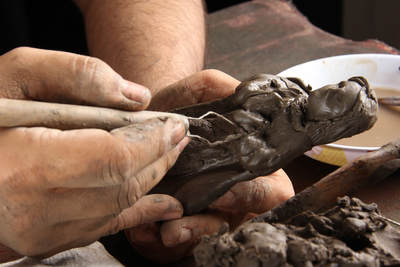

Remember the leftover
square of carpet you
unfolded in my office thirteen
years ago, two years before
the deadly surgery? Remember
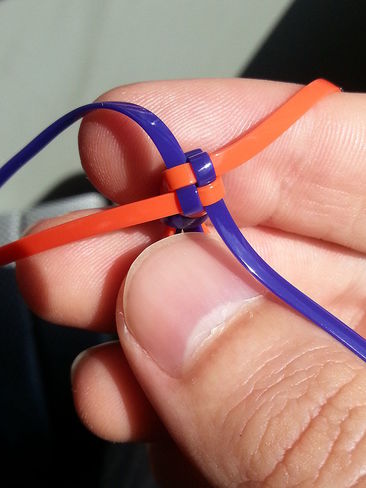

For a daily dose of inspiration, subscribe to the Academy of American Poets' Poem A Day email at https://www.poets.org/poetsorg/poem-day.
 The Tucson Festival of Books -- two full days of books, books, books and more
The Tucson Festival of Books -- two full days of books, books, books and more Today's topic: the Tucson Festival of Books, our first stop on the trip. I wrote at length about last year's festival, and I won't repeat all the details here. (But if you're curious, you're welcome to look back at that post.)
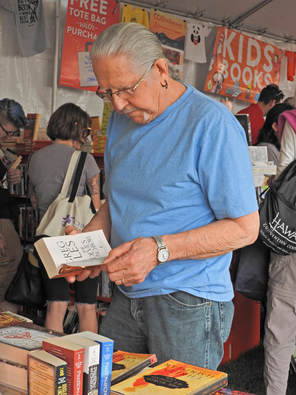 This was Ray's first visit to the festival
This was Ray's first visit to the festival This was my third visit to the festival, but Ray's first. In previous years, I scurried from one end of the University of Arizona Mall to the other, trying to catch as many talks on writing and publishing as I could. It was almost like being back in college (without the exams, thank goodness). This time, I took a different tack, hoping to make the weekend fun for both of us rather than dragging Ray along to talks on topics that would make his eyes glaze over. (Besides, how many more Moleskin notebooks do I really need to fill with conference scribblings?)
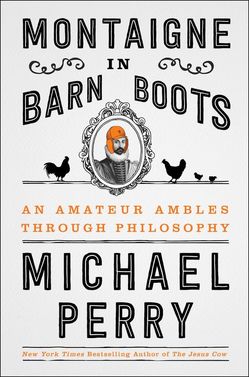
This year, he read from his latest book, Montaigne in Barn Boots: An Amateur Ambles Through Philosophy. As the blurb describes it, the book is a down-to-earth look at the ideas of a philosopher "ensconced in a castle tower overlooking his vineyard," channeled by a Midwestern American writing "in a room above the garage overlooking a disused pig pen." I can't wait to read it.
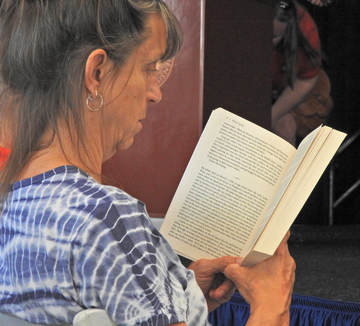 A festival-goer takes a book break
A festival-goer takes a book break
As in previous years, it was heartening to be in the company of more than 130,000 book lovers, to overhear conversations about books and authors and see people browsing through and actually reading books.
 Happy Valentine's Day! (Image: Nan Pokerwinski)
Happy Valentine's Day! (Image: Nan Pokerwinski) Happy Valentine's Day! I don't know if it's the memory of grade-school valentine exchanges or the connection with chocolate, but this has always been one of my favorite holidays.
In the beginning
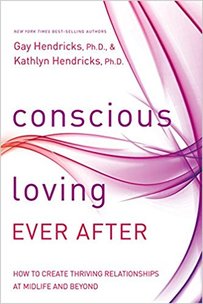 Authors Katie and Gay Hendricks write about creative connections in this book
Authors Katie and Gay Hendricks write about creative connections in this book Perhaps it was that sincerity and mutual respect that helped them develop a partnership in which they could hone their own talents while encouraging each other's. That's a key to creative coupledom, say Katie and Gay Hendricks, husband-and-wife coauthors of Conscious Loving Ever After. "When people get in deeper communication with their own individual creative essence, their relationships blossom as a direct result," they write.
Space, Skills, Support
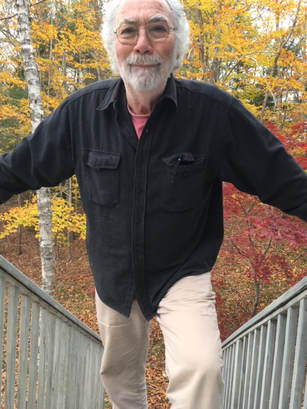 George Waldman (Photo: Mallory Waldman)
George Waldman (Photo: Mallory Waldman) For George and Mallory, support goes beyond encouragement; they also help each other find space and time for creative pursuits. George might move a new loom into Mallory's studio, then do the laundry and fix dinner while she sets it up. Mallory will handle other logistics to give George a chance to "dream or wander or putz around with something."
"I see the play of light in her work, the texture, shapes and colors more deeply than others might," says George. "Photographic elements."
 One of Mallory's works in progress (Photo: George Waldman)
One of Mallory's works in progress (Photo: George Waldman) 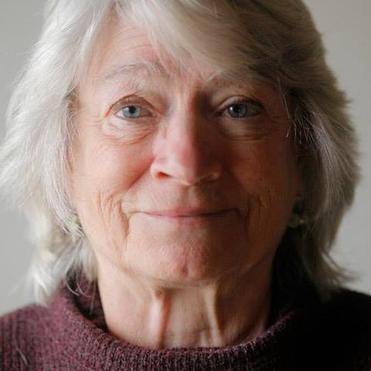 Mallory Waldman (Photo: George Waldman)
Mallory Waldman (Photo: George Waldman) Giving George extra encouragement at that stressful time seemed like a no-brainer to Mallory. "One wants one's lover to be happy, fulfilled and eager to go on," she says.
Passing It On
See more of Mallory's weavings here.
I met Janet/J.Q. through the writers' group at Fremont Area District Library, and I've enjoyed reading her imaginative stories (and indulging our mutual weakness for ice cream). Terror on Sunshine Boulevard is one of my favorites.
Here's a quick word from J.Q., followed by a Q&A. More details about her and her books can be found at the end of the post.
Readers: Please leave a comment below because a lucky commenter will win a PDF copy of Terror on Sunshine Boulevard. Winner will be drawn on Friday, January 19 at 9 p.m. EST.
I chose this setting because the scene one pictures of a retirement community is exactly what you describe--a place where people who have worked all their lives have a chance to enjoy the good things in life. I love the juxtaposition of the bright fun-in- the-sun feeling with the darkness of murder and mystery. Even the title includes the contrasting views—terror and sunshine.
I base my characters on real people in my life. We meet many interesting folks in our travels. And I might add, there are some real characters in Michigan too! I take bits and pieces from personalities, gestures, accents, speech and put them together in one character. I also create the background story of the character to understand his relationships with other characters and his motivation for doing something like stealing, cheating, even murder. All of that information, such as his favorite color, is not spilled out on the page for the reader. The more I know about the character, the more believable he’ll be.
 Tarpon Springs, on central Florida's Gulf Coast. (Photo: Janet Glaser)
Tarpon Springs, on central Florida's Gulf Coast. (Photo: Janet Glaser) In all of my stories the setting is very important. I have mysteries set in the retirement community, a church, and a funeral home. Each location is a message to the reader to understand the reason for the drama within the pages of the book and to set the mood for the scenes. Often the twist comes when a character doesn’t fit into the setting. I think the setting is an element in the story, but I’ve never thought of it as a character. I guess we need to discuss the definition of the character.
Yes. I’m concerned watching “civilization” encroaching on the natural habitat by paving over acres of ground that is home to many animals and native plants. Developers tear out huge areas of property to build malls and subdivisions. Roads and highways cut through ancient areas, disturbing the trails and habits of generations of animals. No wonder wildlife raid garbage cans in subdivisions. Their food supply is no longer available because the homes are built in their habitat. The natural environmental balance is disturbed and the animals’ survival is at risk. We must be better stewards of our resources.
I think many folks believe retirees are no longer useful to society. Don’t believe that! They have not been put out to pasture. A vibrant new chapter opens for them. Seniors have skills and talents polished by their life experiences. They are assets to their communities in many ways and guides to warn the young’uns about their mistakes and to show them how they have triumphed. They are storytellers when they share family stories around the dinner table as the kids sit enthralled learning about the funny, crazy uncle or the accomplished pianist in the family. Seniors are eyewitnesses to the world and our country’s history and will not allow anyone to slant the truth for their own purposes.
To tell the truth, I was a writer way before being a teacher or entrepreneur. I actually started writing stories in second grade and I never stopped. I’ve had mentors and supporters along the way encouraging me to keep writing. First was my Grandmother Maw and teachers. Judy Corey and Mary Zuwerink started the North Country Writers many years ago. Esther Jiran (who writes as Joselyn Vaughn) was the force behind starting a writers group at the Fremont Library. I met many folks excited about writing there including you, Nan. Also a critique group of talented authors not only helped me brainstorm story ideas, but also encouraged me to submit my first story to publishers which resulted in signing a contract with a small publisher. Esther, Wendy Sinicki (pen name W.S. Gager), Theresa Grant (Tess Grant), and Nan continue to be important advocates in my writing life.
After we sold our flower business in 1995, I had time to sit down and write. So I did. I asked Rich Wheater, editor of our regional newspaper, if he could use a few stories for the paper. He said, “Go ahead.” I learned a LOT from him and branched out into writing freelance articles for magazines, newspapers, and online magazines. After reading Sue Grafton’s alphabet mysteries and Janet Evanovich’s funny mysteries, I decided to tackle fiction. And I’m glad I did!
I’ve discovered writing the book is the easy part. After publishing comes the difficult job of promoting the book. I spend many hours a week, every week, on Facebook, my blog, and guesting on blogs to get the word out about the books and urging folks to review my books. Reviews get the attention of Amazon so they promote it; the review helps readers decide if it’s a story they would enjoy.
Yes. Daily routines change, but I learned I had to schedule an appointment with J.Q. Rose to sit down every day and write for half an hour or more. No marketing, no emailing. After lunch, I put on my author cap and write no matter if I’m up north or down south.
I take photos—of everything! I love capturing people, places, things, a tricky bee landing on a flower. I also enjoy “creating” quote graphics at canva.com using my photos.
Yes. My mission is to encourage everyone to take time to write or record their life stories. So what if you didn’t discover a medicine to cure disease or help build a ship to fly to the moon? Your life is worthy because it can inspire others by sharing your experiences of overcoming obstacles, making mistakes or celebrating success. Your stories will allow generations of your family to get to know you and be empowered by your life story. I’m writing a memoir now about the first year we moved to Fremont and started our business. What an adventure.
Do you have a story inside you to share? Go ahead and do it.
Thank you for visiting today.
Back of the Book: Rescuing a naked woman lying in a geranium bed or investigating mysterious murders are not the usual calls for first responder Jim Hart. He expects slip and fall accidents or low blood pressure emergencies in his retirement community of Citrus Ridge Senior Community and Golf Resort. The ghastly crime scenes turn the winter time fun into a terrifying season of death and mystery when the authorities cannot track down the predator responsible.
Jim and his wife Gloria could escape the horror and grief by returning to their northern home, but concern for their friends and residents keep them in Florida. With the entire community in a dither over the deaths, the Harts participate in the normal winter activities of golfing, dancing, and pool parties with their friends to distract them from the sadness and loss.
Can Jim and Gloria work with the authorities to discover who or what is killing the seniors on Sunshine Boulevard and stop the increasing body count?
Terror on Sunshine Boulevard is available for purchase at these digital booksellers.
After writing feature articles in magazines, newspapers, and online magazines for over fifteen years, J.Q. Rose entered the world of fiction. Her published mysteries are Deadly Undertaking, Dangerous Sanctuary, and Terror on Sunshine Boulevard, released by Books We Love Publishing. Blogging, photography, Pegs and Jokers board games, and travel are the things that keep her out of trouble. She spends winters in Florida and summers up north camping and hunting toads, frogs, and salamanders with her four grandsons and granddaughter.
Connect with J.Q. Rose online at
J.Q. Rose blog
Books We Love Author Page
Goodreads
from the heart of the woods
Available now!
Author
Nan Sanders Pokerwinski, a former journalist, writes memoir and personal essays, makes collages and likes to play outside. She lives in West Michigan with her husband, Ray.
Archives
April 2022
August 2021
July 2021
June 2021
May 2021
April 2021
January 2021
December 2020
November 2020
October 2020
September 2020
August 2020
July 2020
June 2020
May 2020
April 2020
March 2020
February 2020
January 2020
December 2019
November 2019
October 2019
September 2019
August 2019
July 2019
June 2019
May 2019
April 2019
March 2019
February 2019
January 2019
December 2018
November 2018
October 2018
September 2018
August 2018
July 2018
June 2018
May 2018
April 2018
March 2018
February 2018
January 2018
December 2017
November 2017
October 2017
September 2017
August 2017
July 2017
June 2017
May 2017
April 2017
March 2017
February 2017
January 2017
December 2016
November 2016
October 2016
September 2016
August 2016
July 2016
June 2016
May 2016
April 2016
March 2016
February 2016
Categories
All
Art
Better Living
Books
Community
Creativity
Events
Explorations
Food
Gardens
Guest Posts
Health
Inspiration
Last Wednesday Wisdom
Local Artists
Mecosta County
Montcalm County
Music
Muskegon County
Nature
Newaygo County
Oceana County
People
Photography
Pure Michigan
Reflection
Return To Paradise
Samoa
Writing
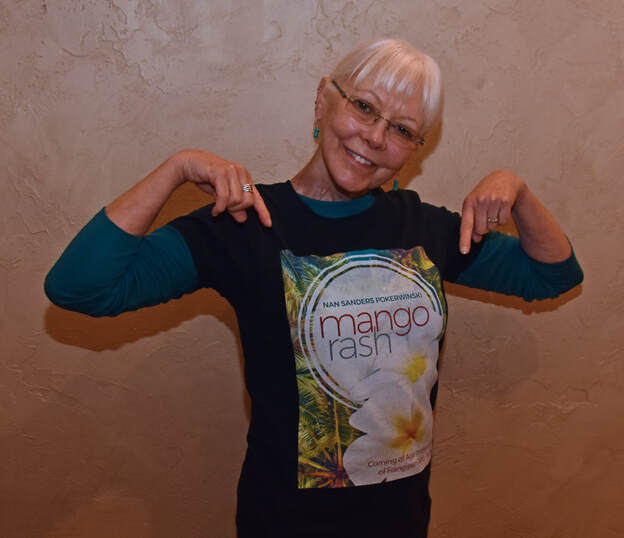
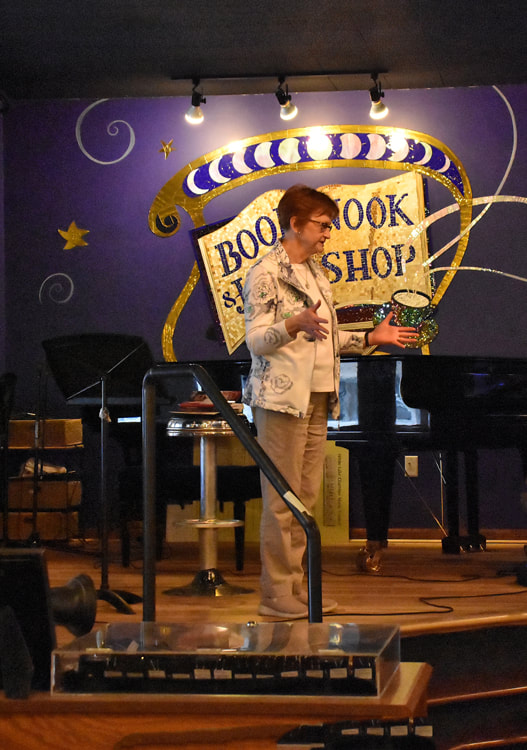
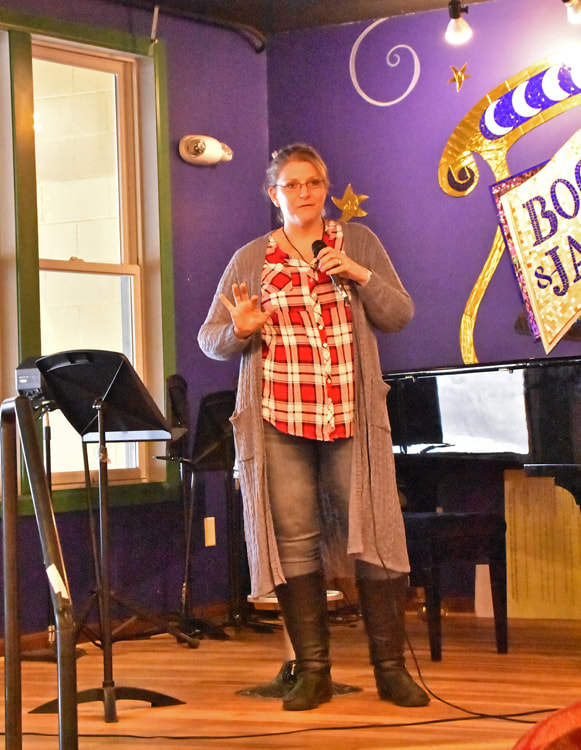
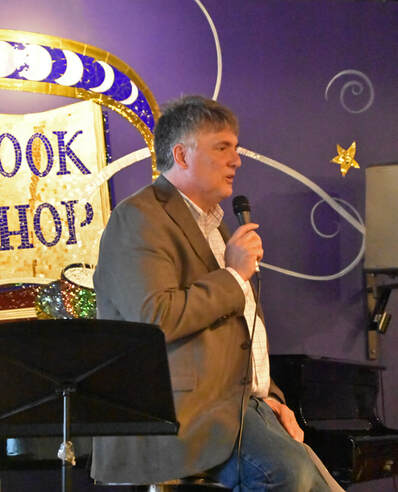
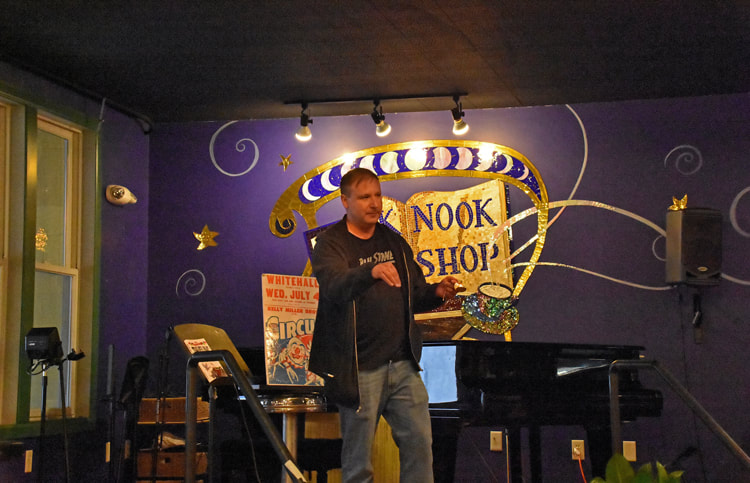
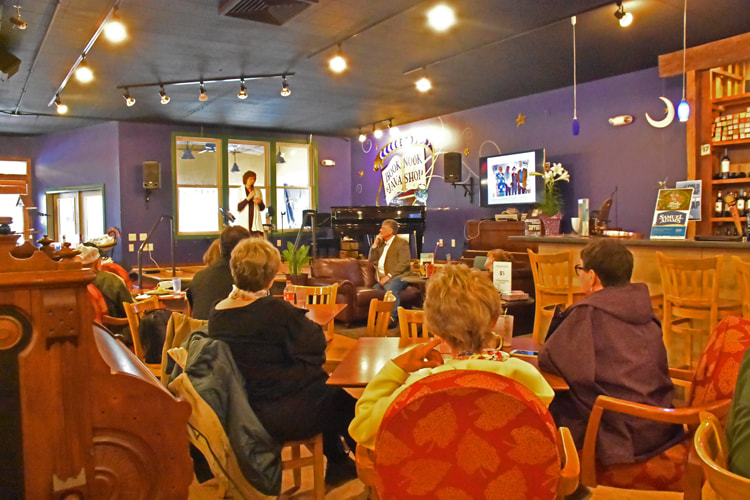
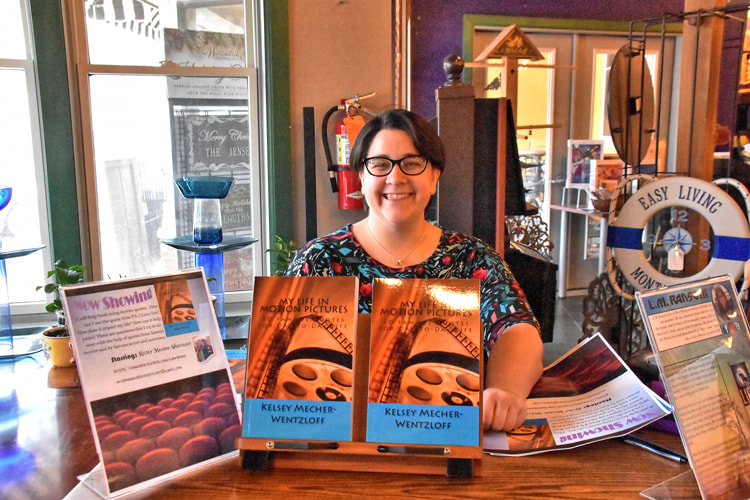
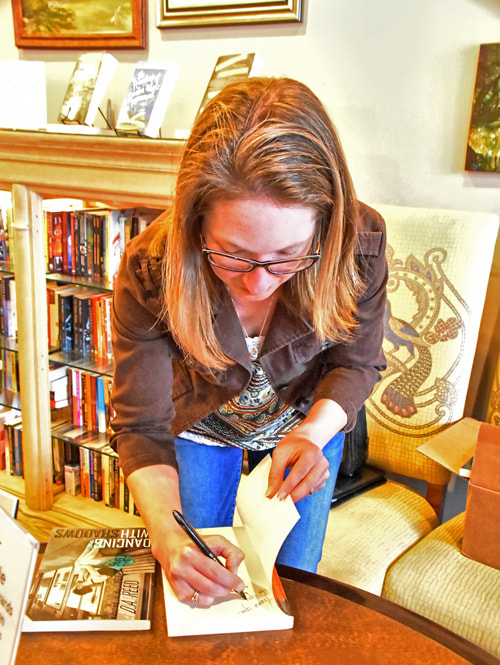
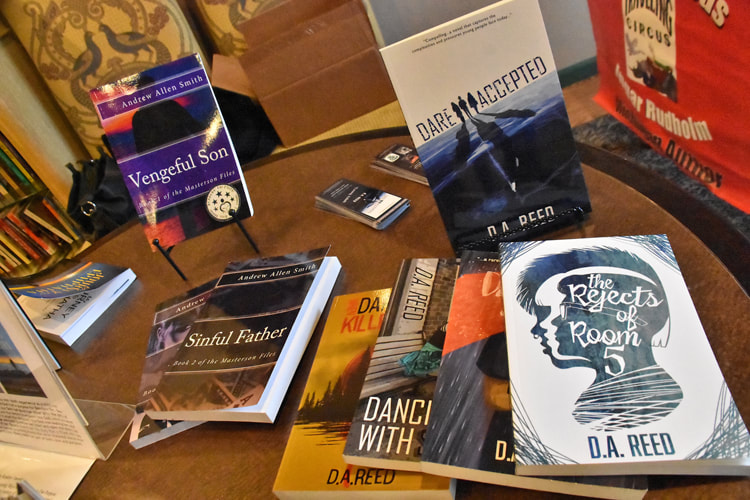
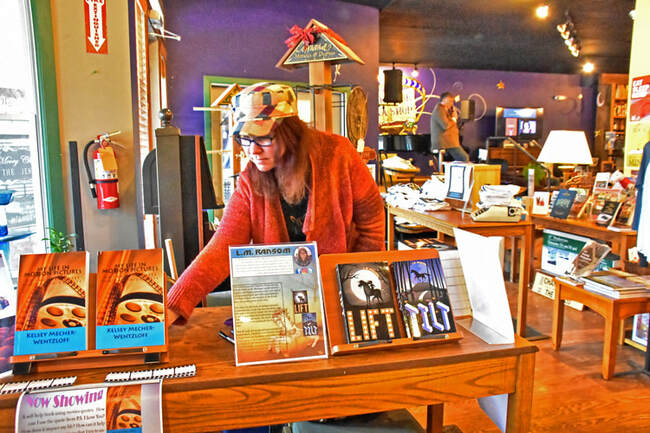
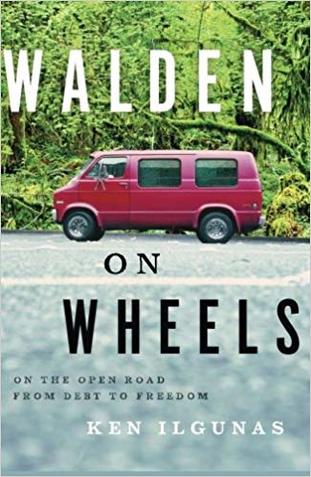
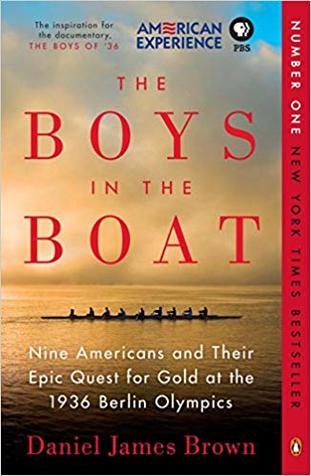
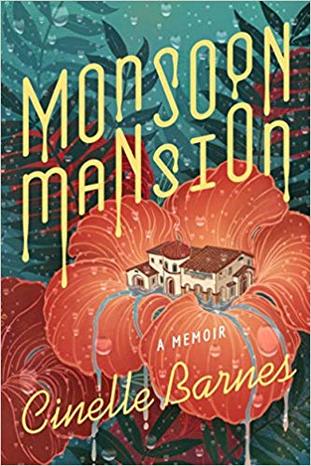
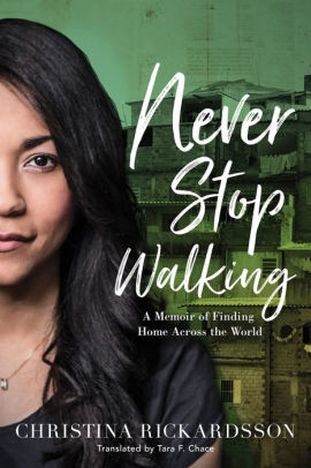
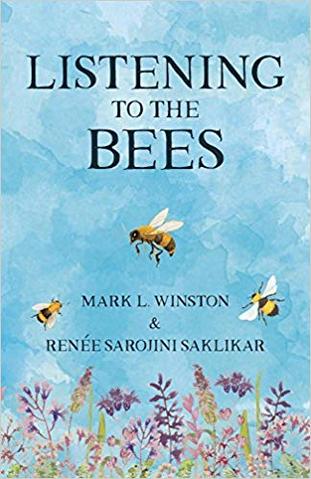
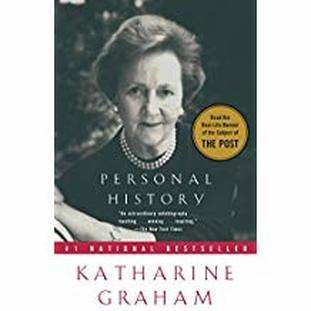
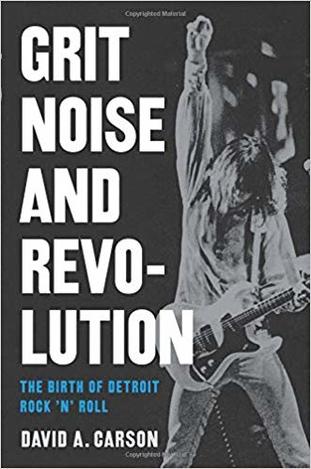
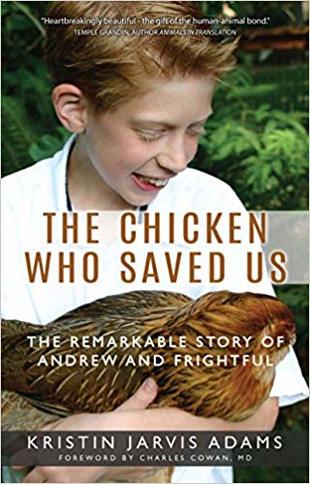
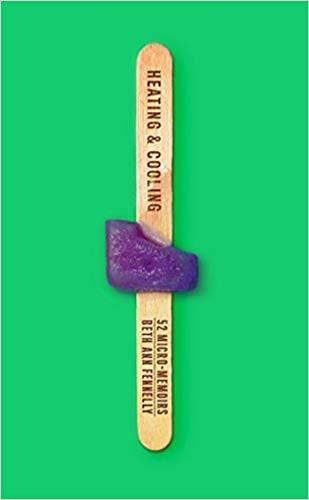
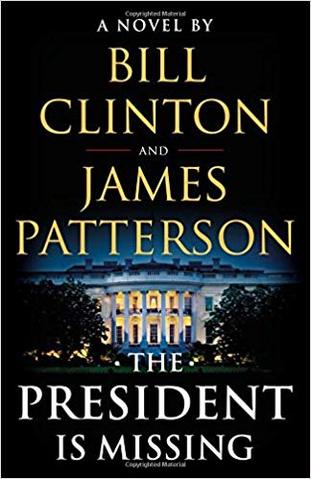
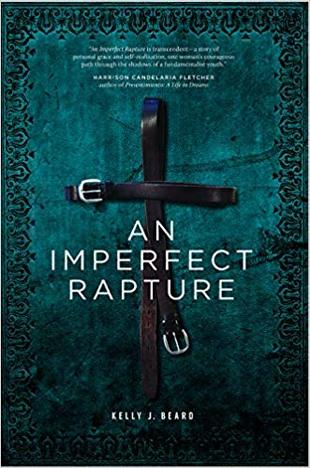
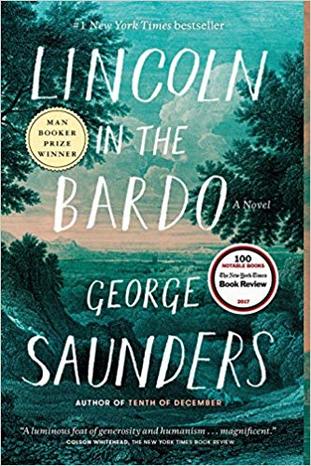
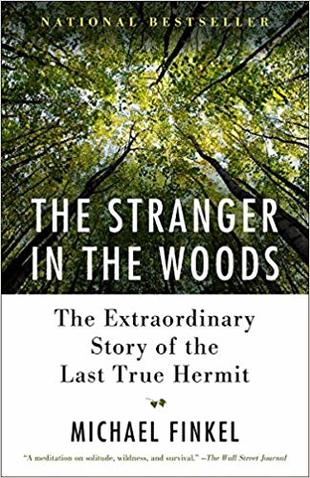

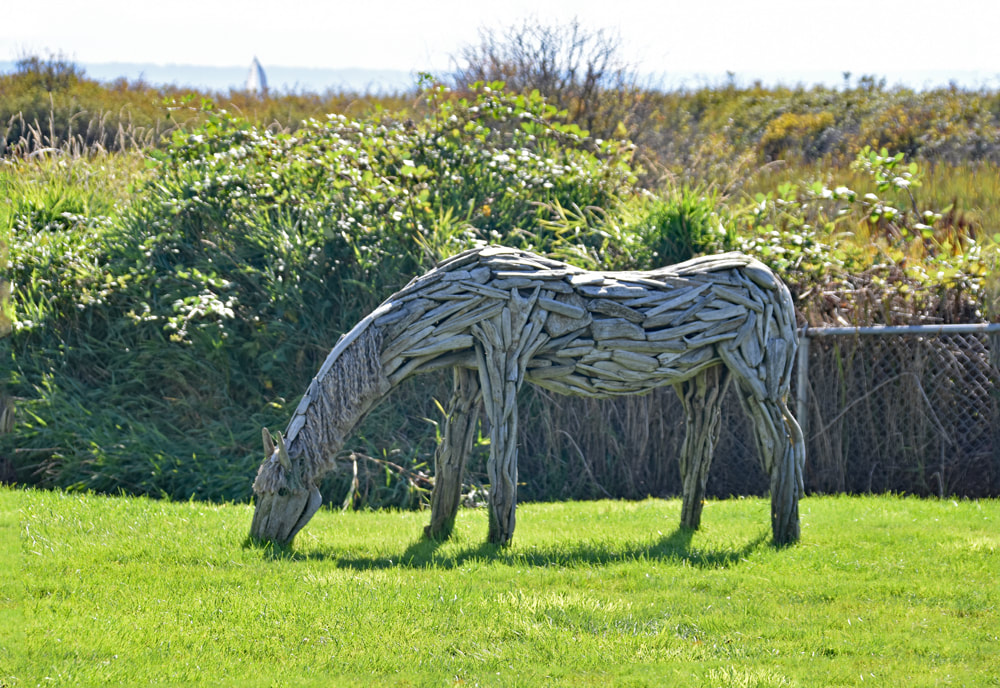
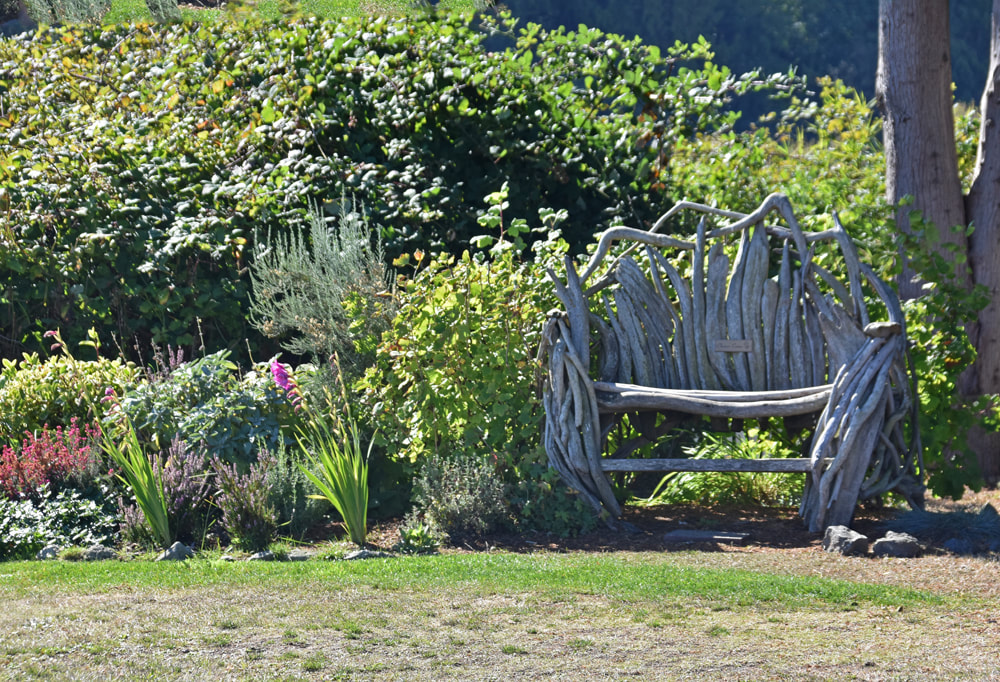
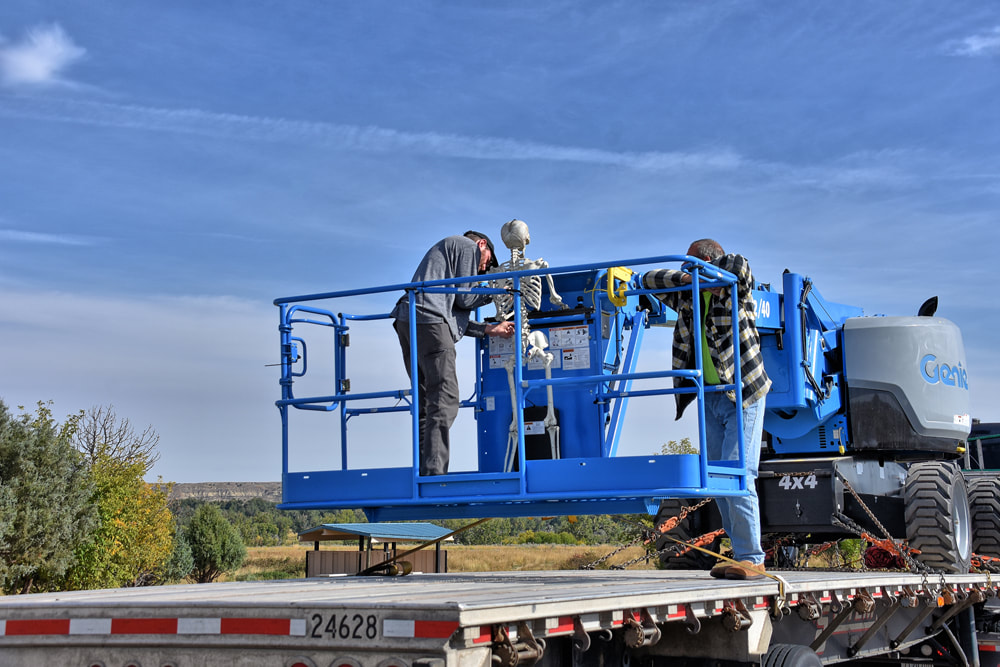
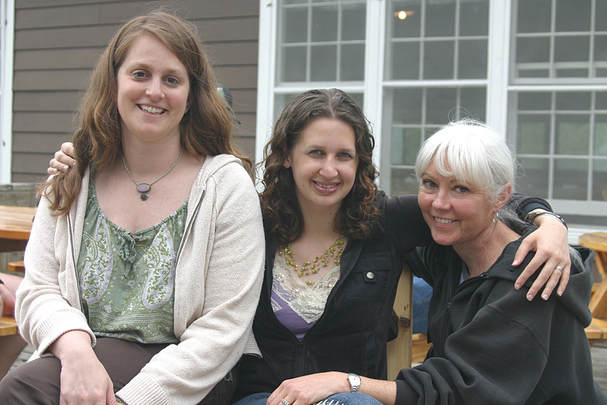
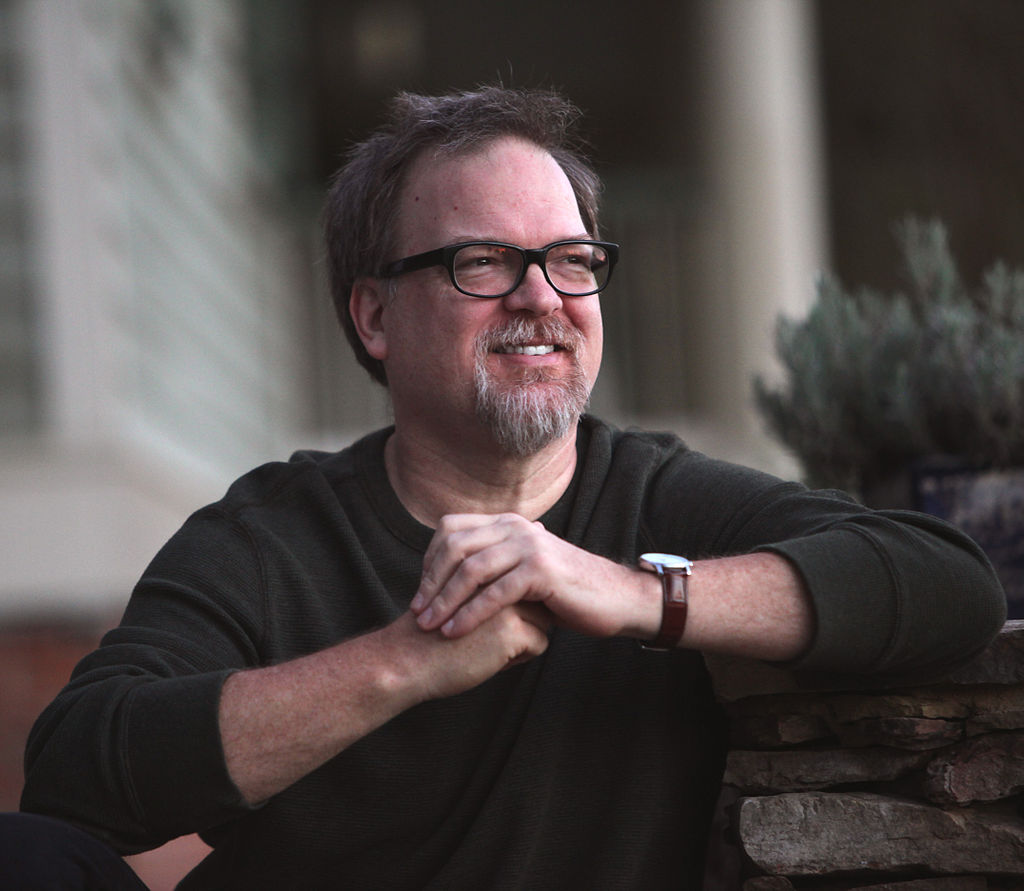
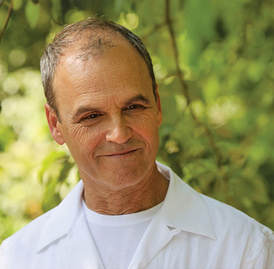
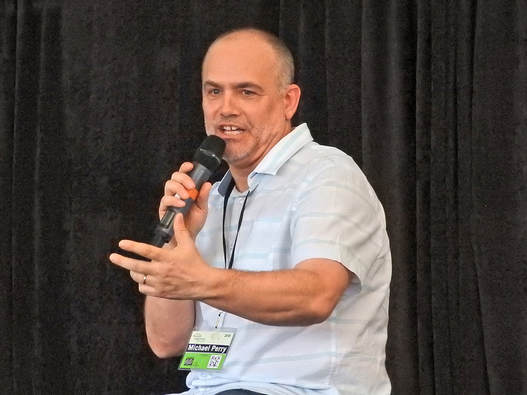




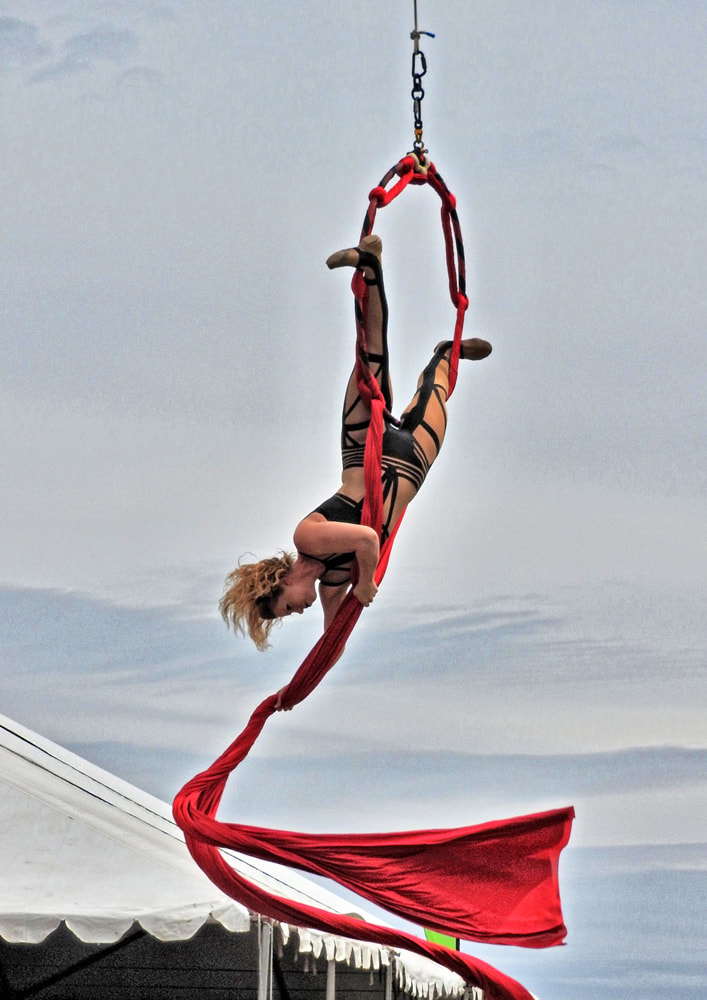
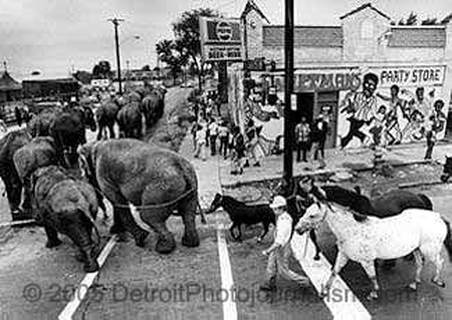

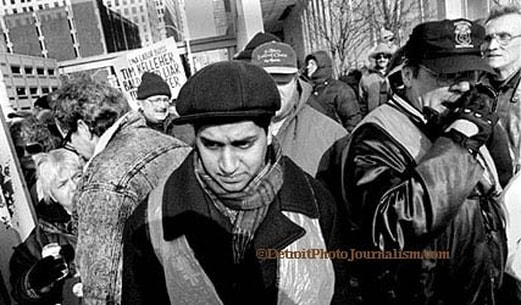

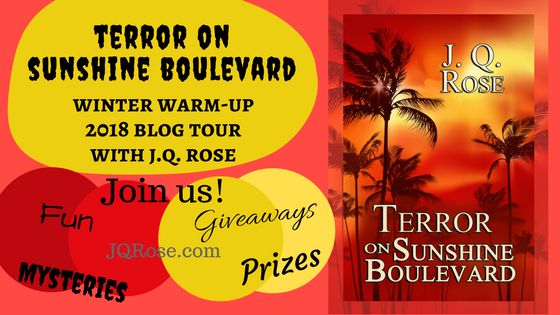

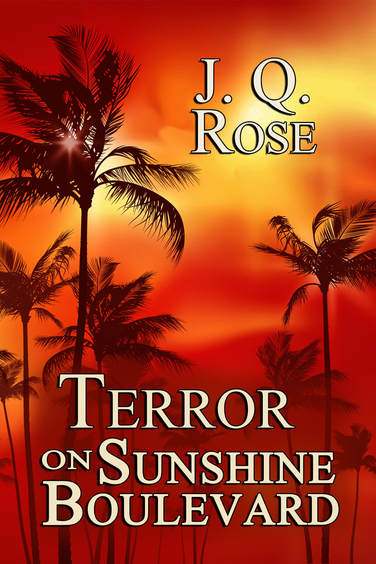
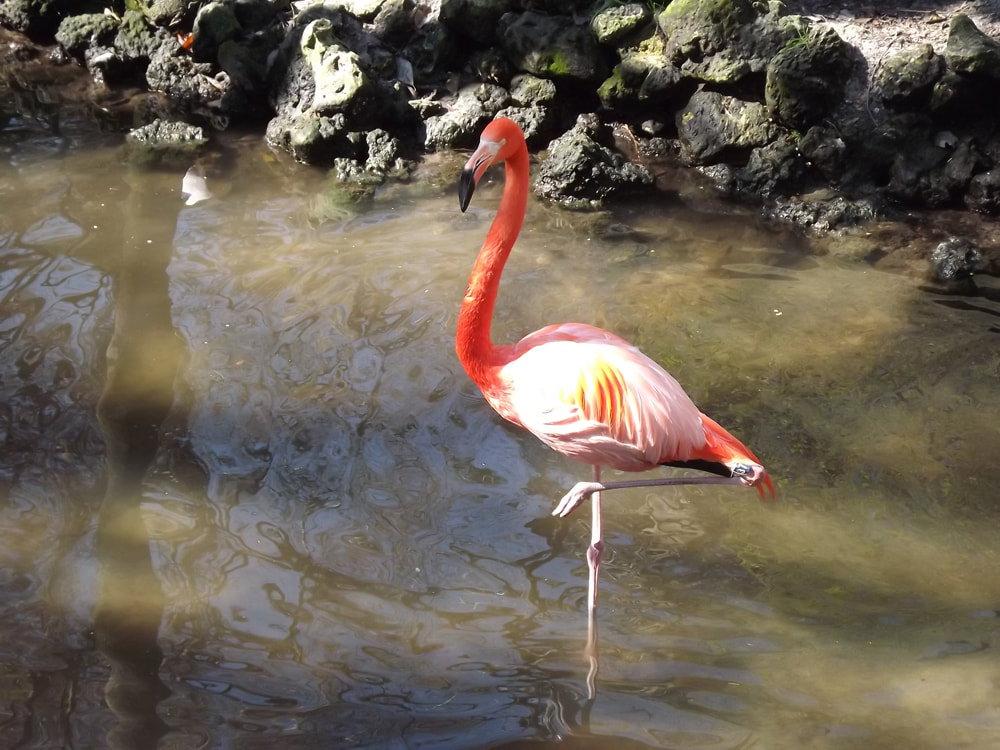


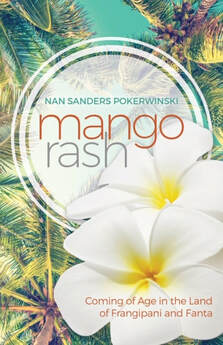
 RSS Feed
RSS Feed